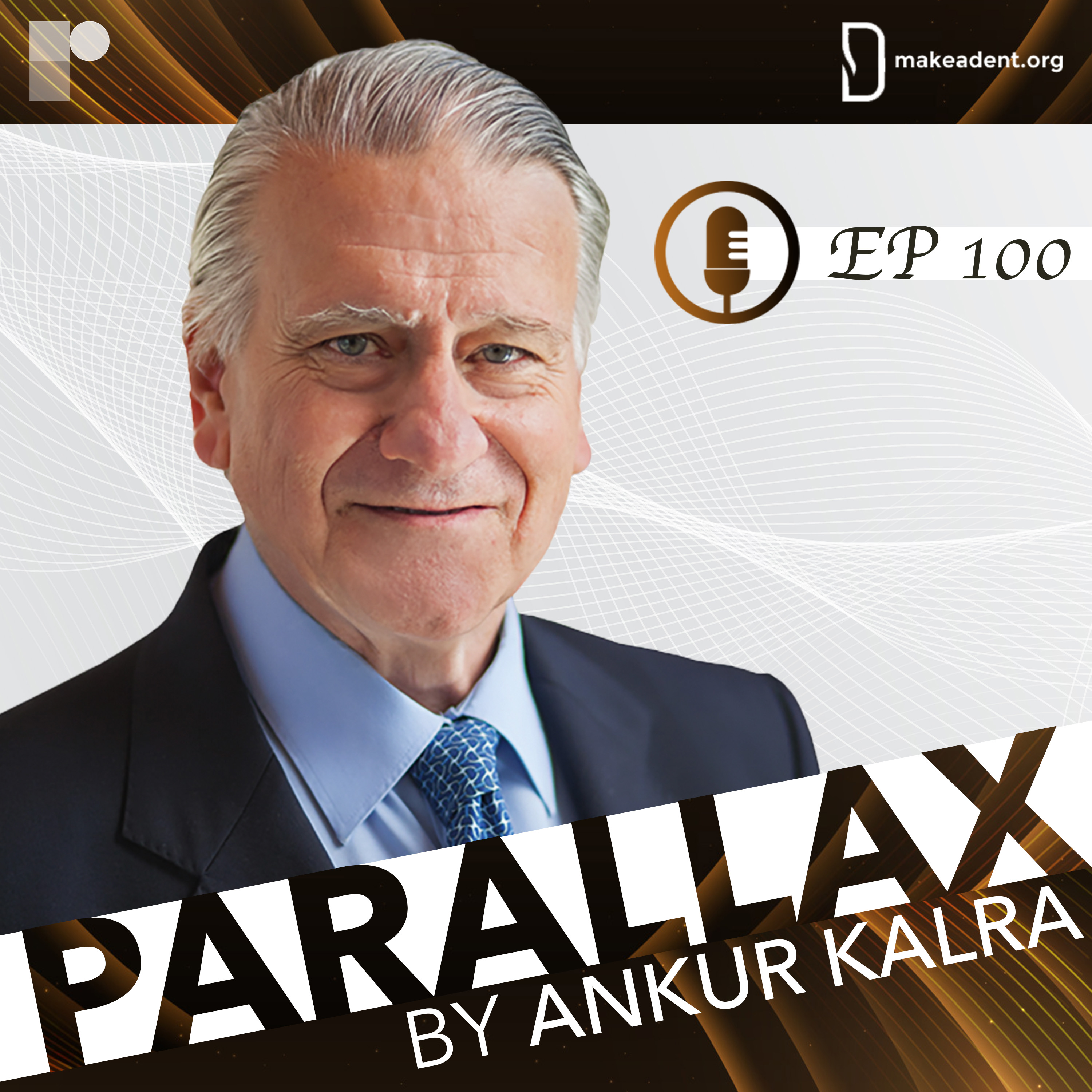
In the landmark centennial episode of Parallax, Dr Ankur Kalra welcomes a true luminary in the field of cardiology, Dr Valentin Fuster.
Dr Valentin Fuster, a renowned cardiologist, currently holds multiple roles. He serves as the Director of the Cardiovascular Institute and as the Physician-in-Chief at the Mount Sinai Medical Center in New York. Additionally, Dr Fuster is the General Director of the Centro Nacional de Investigaciones Cardiovasculares Carlos III (CNIC) in Madrid. Notably, he also holds the position of Editor-in-Chief at the Journal of the American College of Cardiology (JACC).
In this candid and rich episode, Dr Fuster delves into his upbringing in Barcelona and reflects on the influential role his family played in providing him with role models and a sense of freedom during his formative years. Dr Fuster invites us to contemplate the concepts of mentorship and trust by recounting pivotal moments from his life, revealing how these principles propelled him towards a life of fulfilment.
Dr Kalra and Dr Fuster revisit one of the central questions explored in Dr Fuster's book, "The Circle of Motivation" – how can one maintain a positive outlook and prepare for life's inevitable fluctuations? Dr Fuster shares insights into his daily routine, which aids him in reflection, tuning into his intuition, and making choices that align with his true self.
While discussing his priorities, we gain insight into Dr Fuster's projects, driven by the concern that we do not intervene early enough in the treatment of individuals. Dr Kalra and Dr Fuster engage in a discussion about Dr Fuster's thoughts on JACC and Dr Fuster outlines the key principles of leadership in various contexts, accompanied by examples from his own life. Dr Kalra seeks Dr Fuster's perspective on augmentative intelligence and the future of medicine, shedding light on what Dr Fuster believes is essential for contemporary medical education in light of the transformative impact of AI.
Finally, Dr Fuster shares three influential books that have shaped his thinking, along with a message for our listeners.
Resources:
JACC Journals’ Pathway Forward With AI Tools: The Future Is Now
https://www.jacc.org/doi/10.1016/j.jacc.2023.02.030
The Circle of Motivation
https://www.amazon.com/Circle-Motivation-Valentin-Fuster-ebook/dp/B07YLVMSKH



In this episode, Ankur and Danielle speak about the evidence in favour of a whole-food plant-based diet to improve cardiovascular health, the ACC prevention guidelines, how to talk to patients about positive dietary change, the issue of lack of nutrition training in cardiovascular fellowships and what Danielle’s diet looks like as a busy whole-food plant-based cardiology fellow. On her own podcast ‘Nutrition Rounds’ Danielle has discussions about evidence-based plant-based nutrition with physicians who are leading experts in nutrition and health.
Hosted by @AnkurKalraMD. Produced by @RadcliffeCardiology.

In this brilliant conversation, Ankur, Emmanouil and Michael unravel the potential advantages, challenges and practical realities of using drug-coated balloons in SVD, and the findings of the latest randomised controlled trials studying this area.
Hosted by @AnkurKalraMD. Produced by @RadcliffeCardiology. [Disclaimer: The use of drug-coated balloons in coronay intervention is still off-label; it has not been approved by the FDA.]

Dawn is an associate editor of the journal Circulation: Cardiovascular Interventions and is widely known for her research program on PCI and peripheral arterial disease (PAD). Ankur and J. Dawn discuss multiple trials/studies that were published in 2018, including ORBITA, PIONEER-II and ABSORB. J. Dawn also shares her thoughts on the latest stent technologies.
Hosted by @AnkurKalraMD. Produced by @RadcliffeCardiology.

They discuss the importance of preventative medicine, their experience of reducing hypertension with non-pharmaceutical and pharmaceutical methods, and the significance of the integrated “team approach” when treating comorbid conditions such as hypertension. Athena also shares her thoughts on cardiologists’ responsibility to shape their patients’ lifestyle choices.
Hosted by @AnkurKalraMD. Produced by @RadcliffeCardiology.

Chest pain is one of the most common reasons for an emergency room visit in the US, with almost 6 million ER visits annually, yet there is no consensus on how to compare the results from various hscTn assays. Tune in to hear Santiago outline the advantages and limitations of using hscTn as a standard biomarket to evaluate patients with suspected ACS in the ER.
Hosted by @AnkurKalraMD. Produced by @RadcliffeCardiology.





